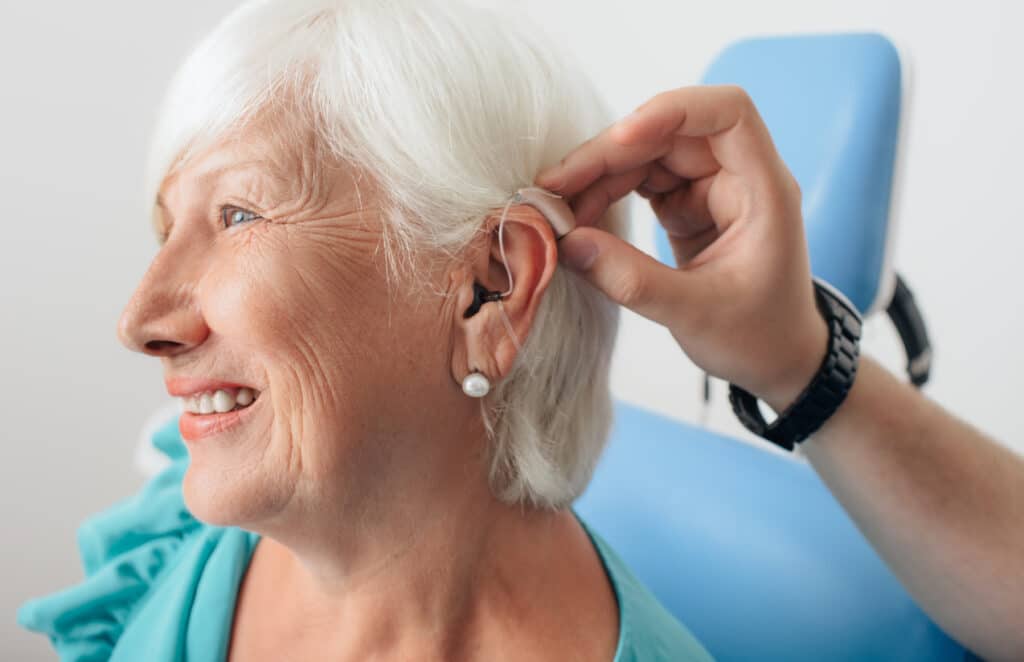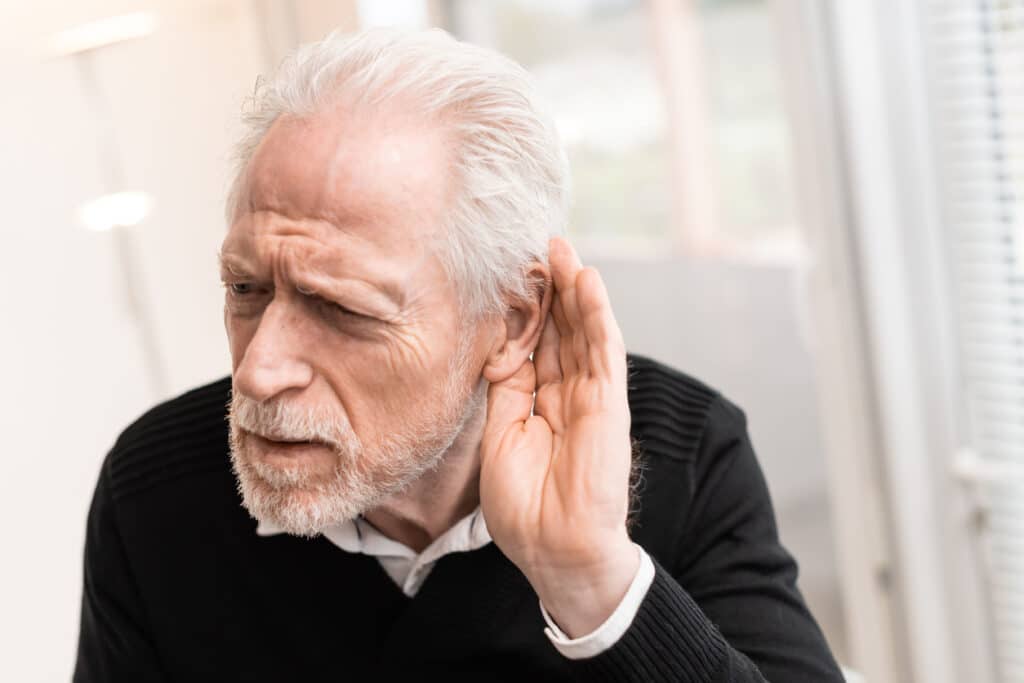
Hearing loss is much more common than you think. While most people think of loud noises as causing hearing impairment, age can also contribute to the problem. According to the National Institute on Deafness and Other Communication Disorders, incidences of hearing loss increase with age. Among those between 60 and 69, 39% have some form of hearing loss. Recognizing the signs of age-related hearing loss can improve outcomes with treatments.
What Is Age-Related Hearing Loss?
Age-related hearing loss, also known as presbycusis, differs from other forms of hearing loss. What distinguishes presbycusis is its slow development, the loss of ability to hear high-pitched noises, the remaining capability to hear low-pitched sounds, and physical changes to the ear or nerves that cause it.
While age-related hearing loss happens frequently in older populations, many people have both presbycusis and noise-induced hearing loss. The latter happens when excessive noise exposure causes damage to the hair cells in the ears responsible for transmitting sound waves. Therefore, all people of all ages should be careful to protect their ears when exposed to loud or sustained noises. In fact, wearing hearing protection even after a diagnosis of presbycusis can prevent excessive noise from causing additional hearing problems.
What Causes Presbycusis?
Presbycusis may happen from changes in tissues, blood flow, nerves, or cells in the ear. The most common cause of age-related hearing loss is damage to either the cells of the inner ear or the nerves that deliver auditory information to the brain. Other forms happen when blood flow reduces to the inner ear or the tissues in the ear thicken.
Root causes behind these types of hearing loss include high blood pressure, diabetes, medications, genetics, and aging.
Warning Signs of Age-Related Hearing Loss

Presbycusis comes with several warning signs. Watch out for the following in yourself or a loved one:
- Low-pitched sounds are clearly heard when high-pitched sounds are not
- Conversations are difficult to hear clearly, especially in areas with background noise
- Ringing that may affect one or both ears
- Speech may seem inarticulate by sounding slurred or mumbled
- Sounds such as “s” and “th” sound the same
- Some noises seem too loud
If you notice the above symptoms of presbycusis, make an appointment with a doctor who can write a referral to either an otolaryngologist (ear, nose, and throat doctor) or an audiologist (hearing doctor). These specialists can determine the cause of hearing loss and help find treatment.
Why You Should Not Ignore Hearing Loss
You should not accept hearing loss as a natural consequence of aging. The sooner you recognize that you have presbycusis, the earlier you can begin interventions to slow the process and protect the hearing you have left.
Untreated hearing loss can have several negative consequences. First, it can cause the neural pathways in your brain related to sound to atrophy. Second, the chances of Alzheimer’s disease and dementia can increase after hearing loss. Finally, quality of life can decrease with continued hearing loss.
Treatment Options for Presbycusis
Fortunately, if you notice signs of presbycusis early, you can get a hearing aid, assisted listening device, or cochlear implant to boost your ability to hear. Speech-reading training may also help in social situations because you learn to interpret what someone says by using both verbal and visual cues.
Social support is important for all seniors to maintain mental and emotional health. Senior living that encourages interaction provides that type of support, which can help those with presbycusis to continue to stay social and active. We provide that type of socially rich environment for seniors at Renaissance Villages. In addition, our ONR TOUCH Specialized Programs include offering wellness screenings to identify areas where residents may need help.
Find out more about us at Renaissance Villages and how we can help you or your loved ones enjoy luxurious senior living. Contact us today to learn more about how our luxurious setting makes the senior years truly golden.

